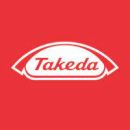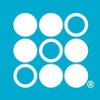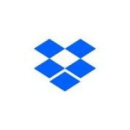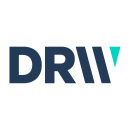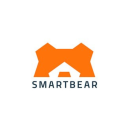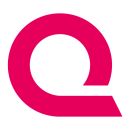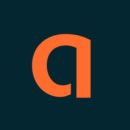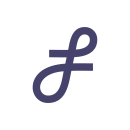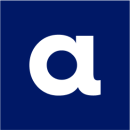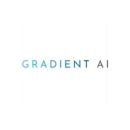Zach Bybee never had opportunities fall into his lap when he first set out to forge a career in AI.
Rather, he had to seek out people who could share their expertise, making them trusted mentors. Bybee observed their habits, learned their thought processes and asked questions constantly, and leveraging their insight, he ultimately secured a role as a data engineering manager at Gradient AI.
The company has enabled him to embrace his “dream job” — tackling the new frontier of AI while driving change across the healthcare and insurance sectors.
“It’s genuinely a privilege to be part of a team working on cutting-edge technologies that have the potential to change lives,” Bybee said.
Opportunities to spearhead AI innovation, coupled with a compelling mission, were the catalyst behind his decision to join Gradient AI, where he has created a meaningful career. Lead Data Scientist Lavanya Wadhwa has found the same level of fulfillment at pharmaceutical company Takeda, where she leverages experience in solving complex problems in order to drive a mission with real-world impact.
“Everyone is genuinely committed to improving patient life and the donor experience, and making a meaningful difference in the world, which creates a deeply motivating and mission-driven environment,” she said.
At Klaviyo, a mission-driven culture motivates Senior Software Engineer Reina Feng and her peers to help brands thrive, which requires continuous collaboration and top-notch technical skills.
“I’m proud of the features we build and excited to see the impact they make on our customers,” she said. “Every new project feels like another opportunity to grow and contribute.”
Having a background in data science and web applications made Feng the perfect candidate for her role at Klaviyo, enabling her to bridge the gap between analysis and implementation. This knowledge, combined with strong communication skills, secured her a spot at the company.
While Bybee, Wadhwa and Feng all took different routes to land their dream jobs, they’re all connected by opportunities to innovate, evolve and make an impact. Below, each of these individuals, along with 14 other technologists across the country, describe how they landed their current roles and how others can do the same.
Atlassian is a leading provider of collaboration and productivity software, empowering teams worldwide to unleash their full potential.
What makes your role now a dream job? What do you get to do that you didn’t at other companies?
In my current role at Atlassian, I find the flexibility in how and when I work to be a significant advantage. This autonomy allows me to confidently identify areas for improvement and propose solutions within my team that are taken seriously, fostering a culture of continuous improvement. Additionally, I have the unique opportunity to engage in both front-end and back-end development, which enables me to exercise a diverse range of skills and expand my technical expertise.
“This autonomy allows me to confidently identify areas for improvement and propose solutions within my team that are taken seriously, fostering a culture of continuous improvement.”
Atlassian also encourages innovation by allowing me to dedicate 10 to 15 percent of my time to work on development productivity and side projects that enhance both my effectiveness as well as that of my teammates. There are also numerous opportunities to participate in cross-functional initiatives, contributing to projects that have a meaningful impact across the organization. These aspects collectively create an enriching work environment that I have not experienced at previous companies.
What do you think helped you land the job? Were you able to bring any special expertise or project experience that Atlassian found valuable?
Several factors contributed to being selected for the position. Firstly, my experience working on various personal projects showed initiative in enhancing my technical expertise, which I believe resonated well with the hiring team. I also made a concerted effort to familiarize myself with Atlassian’s company culture, taking time to consider which past experiences aligned with the organization’s values. In addition to this, my experience on the board of directors of a nonprofit organization provided valuable insights into cross-functional teamwork, leadership and project organization — skills that are highly relevant to the role of a software engineer. These elements showcased my qualifications and fit for the position, ultimately helping me land the job!
What do you think helps engineers move up quickly or be the top pick for a competitive employer? What should engineers seek out if they hope to move up or be hired by their “dream” company?
I think that engineers should focus on developing a broad and relatively shallow understanding of commonly used engineering patterns, tools and system design, while maintaining a deep expertise in their specific area of interest. It can be tempting to want to become an expert in everything, but realistically there will always be more you can learn in every domain. Get a basic understanding of much, and lean into your strengths! Establishing a mentorship relationship with someone who is a few steps ahead has also provided me with extremely valuable insights and guidance. Additionally, engaging in projects that are both enjoyable and intellectually stimulating — whether within your current organization or in your free time — allows for experimentation with new technologies and skill set expansion in a sustainable manner. By prioritizing these things, engineers can definitely increase their appeal to prospective employers.
Takeda is a pharmaceutical company that develops treatments for various therapeutics areas, including rare diseases, neuroscience and oncology.
What makes your role now a dream job? What do you get to do that you didn’t at other companies?
My current role truly feels like a dream job because it aligns deeply with both my professional interests and personal values. In addition to being a part of one of the most exciting and rapidly evolving areas — AI — I get to work on high-impact projects that challenge me technically while also giving me the freedom to be creative and innovative. What makes this team stand out is the shared sense of purpose and passion each individual brings to their work. Everyone is genuinely committed to improving patient life and the donor experience, and making a meaningful difference in the world, which creates a deeply motivating and mission-driven environment.
“What makes this team stand out is the shared sense of purpose and passion each individual brings to their work.”
One of the most valuable aspects of this role is the trust and autonomy we’re given. Leadership empowers engineers to take ownership, make decisions, and drive real impact. On top of that, the company invests heavily in our growth through top-tier learning resources and flexible work policies.
What do you think helped you land the job? Were you able to bring any special expertise or project experience that Takeda found valuable?
I believe a combination of domain expertise and how I communicated impact helped me land the role. I had worked on a few key projects that demonstrated my ability to solve complex problems at scale — particularly around traditional AI/machine learning, optimization, forecasting, machine learning operations, analytics and storytelling. During interviews, I focused on not just what I did, but why it mattered: business impact, cross-team collaboration and measurable outcomes.
Wadhwa’s Tips for Standing Out or Moving Up
- “Own impact: Seek projects with visibility and measurable outcomes.
- “Develop breadth: Gain exposure across the stack or in different phases of the product lifecycle.”
- “Communicate well: Be able to explain your technical decisions to non-engineers.”
- “Keep learning: Stay current with tools and patterns relevant to your domain.”
What do you think helps engineers move up quickly or be the top pick for a competitive employer? What should engineers seek out if they hope to move up or be hired by their “dream” company?
Engineers who move up quickly tend to do more than write good code — they think about the “why” behind the work. Top employers look for engineers who demonstrate initiative, cross-functional communication and the ability to understand both user needs and business goals.
Klaviyo’s platform combines marketing automation, analytics and customer service capabilities, making it easier for business-to-consumer brands to grow and enable real-time personalization.
What makes your role now a dream job? What do you get to do that you didn’t at other companies?
One word: growth. Klaviyo fosters a strong culture of learning and support. When I joined as a software engineer II, transitioning from a data scientist role, it was a big leap —
but I was given the space and encouragement to grow. In just a few years, I’ve gained experience with industry-leading technologies like Spark, Apache Iceberg and Apache Flink while also developing both technical and soft skills through project ownership. Even early on, my manager empowered me to lead initiatives and drive team objectives.
Klaviyo invests in engineers through learning stipends, mentorship programs and opportunities to attend conferences and training sessions. That commitment to development is something I truly value. The collaboration here is also a highlight. Whether it’s engineers, product managers or designers, everyone is approachable, and there’s a strong culture of helping each other out. I’m proud of the features we build and excited to see the impact they make on our customers. Every new project feels like another opportunity to grow and contribute.
What do you think helped you land the job? Were you able to bring any special expertise or project experience that Klaviyo found valuable?
When I joined Klaviyo as a junior engineer, I believe my background in both data science and web applications made me a strong fit, especially since the team was a part of the data science department at the time. Having experience in both areas helped me bridge the gap between analysis and implementation. Strong technical and communication skills were also key in the interview process. Being able to explain my thinking clearly and collaborate cross-functionally was just as important as writing code.
After I joined, another valuable asset was my experience with Spark and distributed systems. Klaviyo processes millions of records, and when we migrated to a data lake, my familiarity with large-scale Spark jobs helped the team adapt more quickly. Sometimes, skills you’ve picked up from past roles can become unexpectedly useful. Staying up to date with popular and evolving technologies can give you an edge — even if you don’t know exactly when you’ll use them.
“Staying up to date with popular and evolving technologies can give you an edge — even if you don’t know exactly when you’ll use them.”
What do you think helps engineers move up quickly or be the top pick for a competitive employer? What should engineers seek out if they hope to move up or be hired by their “dream” company?
Find a role model within your team or org; someone whose path you admire. Observe how they work, communicate and lead. It’s one of the fastest ways to grow, both technically and professionally.
Be proactive. Look for chances to take ownership and contribute beyond what’s expected. Communication skills, initiative and the ability to learn quickly are just as important as technical knowledge.
Take full advantage of learning resources, whether it’s internal documentation, Slack history, the company wiki, codebases or online tutorials. Being resourceful and self-driven can help you ramp up faster, unblock yourself, and solve problems more effectively.
If you’re aiming for a “dream job,” focus on aligning your experience with the role. Build up the skills that are in high demand for that position. In the end, curiosity, adaptability and a growth mindset are what help engineers stand out in competitive environments.
SoFi’s financial products and services are designed to help people borrow, save, spend, invest and protect their money.
What makes your role now a dream job? What do you get to do that you didn’t at other companies?
As the engineering director of mobile at SoFi, my current role is truly a dream job. It offers a significant opportunity to lead a large consumer application at a rapidly expanding public company. Unlike my previous company, which had a massive mobile team and codebase that was slower to work on, SoFi’s smaller size allows for the rapid implementation of new ideas, similar to a startup environment. Simultaneously, we have a large, and growing user base and hundreds of new features being built which presents exciting opportunities to work on scaling our products.
“It offers a significant opportunity to lead a large consumer application at a rapidly expanding public company.”
I have found that leadership and engineers are more than willing to adopt new technologies and best practices, so coming from a bigger company, I’ve been able to apply my knowledge and teach people new skills.
What do you think helped you land the job? Were you able to bring any special expertise or project experience that SoFi found valuable?
SoFi is in a rapid growth phase, as we recently went public and have been building many “zero-to-one” features from the ground up. Looking forward, we are going to have exciting challenges scaling the company to millions of new customers and hundreds of new features. Our codebase and systems will need to scale quickly to accommodate this exponential growth.
I was fortunate enough to be with Uber for 10 years from the early startup days to what it is today. I learned a lot about scaling large consumer mobile apps, having led mobile platforms teams for both the Uber Rides and Uber Eats, which definitely helped me land the job.
What do you think helps engineers move up quickly or be the top pick for a competitive employer? What should engineers seek out if they hope to move up or be hired by their “dream” company?
Engineers who are growing in their careers should first and foremost focus on mastery of their craft. They should focus on learning from the best, reading all the books, watching tech talks, and diving into open-source projects. Keeping up the date on where the industry is going and using your spare time to learn new technologies and platforms will keep you in the loop.
As engineers move up in seniority, they should look to take on as much responsibility as they can and stretch themselves beyond their comfort zones. As AI starts to write more and more of the code, leadership skills will become a differentiator. Learn how to lead others and get projects completed consistently and efficiently.
And lastly, communication skills are critical, especially in more senior roles. Learn how to write well and express ideas concisely and clearly. Being able to present well to peers and leaders to persuade people of your ideas will lead to more of your ideas being heard and adopted. In a nutshell, invest in your soft skills.
Dropbox provides cloud-based solutions for file storage, sharing, and collaboration, leveraging AI to transform knowledge work for over 700 million users.
What makes your role now a dream job? What do you get to do that you didn’t at other companies?
What makes this role unique is the scope of the problem and the timing. We’re at a turning point in how knowledge work gets done, and Dropbox is investing deeply in AI to make that work more focused, creative and human. I lead both product and go-to-market for Dropbox Dash, so I get to work across the full lifecycle: from how we build the right capabilities into the product, to how we position and deliver them in-market. That dual lens is rare and personally energizing. Our team operates more like a startup than a traditional org. We experiment, ship quickly, and learn fast. But we’re also backed by a company that has a strong foundation of trust, reach and values. I’ve worked in a lot of high-growth environments, and this is one of the few places where the culture matches the ambition. You’re encouraged to take risks, supported by thoughtful collaborators, and still rewarded for holding a high bar for your craft.
“We experiment, ship quickly, and learn fast.”
What do you think helped you land the job? Were you able to bring any special expertise or project experience that Dropbox found valuable?
There wasn’t one thing; it was more the pattern across roles. I’ve built and scaled zero-to-one products, from early-stage concepts through growth inflection. At Meta, that included leading the Instagram growth team and building new messaging products at Messenger. At Shopify, I worked on the self-serve business and led the performance marketing org with a focus on making it as easy as possible for anyone to create a Shopify store around the world. I’ve also spent a lot of time thinking about how product and go-to-market functions integrate (I even co-wrote the book, Hacking Growth!). Not just how we build, but how those products are distributed, messaged and supported. That full-stack orientation matched what Dropbox needed. I try to operate with high agency, low ego and clear thinking. I think that combination of technical fluency, go-to-market depth and a practical mindset helped me stand out.
What do you think helps engineers move up quickly or be the top pick for a competitive employer? What should engineers seek out if they hope to move up or be hired by their “dream” company?
What separates great candidates is their ability to think and act like product owners. That means connecting your work to real outcomes — customer impact, business value and system-wide improvement. Craft is the baseline; engineers who ask “Why are we solving this?” or “How will this change behavior?” tend to stand out. It shows they’re thinking beyond their lane. The second trait I look for is agency. People who don’t wait for perfect specifications, who take initiative and iterate, tend to grow faster. That said, growth doesn’t just come from speed, it comes from clarity, from learning loops and from surrounding yourself with thoughtful peers. Look for environments that support experimentation and leaders who value product sense and curiosity as much as raw execution.
DRW is a diversified trading firm that trades a wide variety of products and asset classes across five continents.
What makes your role now a dream job? What do you get to do that you didn’t at other companies?
For me, a dream job blends continuous learning with the opportunity to apply interesting technologies that help our end users achieve more as efficiently and effectively as possible, while still maintaining a great work-life balance. At DRW, my team gets to do that by working directly with traders and portfolio managers to improve the efficiency of their trading operations. To achieve that we work on streamlining their data processes, enhancing the tools we provide via Excel and Python; plus, we advise them on how to design solutions for any technological challenge that may arise.
“For me, a dream job blends continuous learning with the opportunity to apply interesting technologies that help our end users achieve more as efficiently and effectively as possible, while still maintaining a great work-life balance.”
What do you think helped you land the job? Were you able to bring any special expertise or project experience that DRW found valuable?
I landed my job through a combination of technical prowess and soft skills. The former was proven by tackling technical interviews, solving coding challenges and being able to talk about my career achievements in detail, but the latter was shown by discussing different situations throughout my career where I was able to collaborate, coordinate and come to an agreement with my peers to find suitable solutions for our end users.
What do you think helps engineers move up quickly or be the top pick for a competitive employer? What should engineers seek out if they hope to move up or be hired by their “dream” company?
Proving you are a hard worker and displaying your technical expertise are hard to beat, but I personally find that showcasing resilience is a major advantage to stand out among candidates. A great way to do that is to highlight examples throughout your career where you overcame a difficult situation, whether that’s disagreements with peers, hard technical problems or otherwise, and delivered satisfactory results.
Corporate Tools is a “professional-services-as-a-product” company, specializing in various types of solution development.
What makes your role now a dream job? What do you get to do that you didn’t at other companies?
This job gives us true autonomy. We’re trusted to take ownership of our work and solve problems collaboratively without micromanagement. That level of trust creates a healthy, supportive environment where people feel empowered to do their best work. We get to make thoughtful technical decisions as a team. Compared to past roles, there’s a stronger focus on outcomes rather than process for the sake of process. That freedom to make a meaningful impact, paired with working alongside people who care deeply, makes this feel like a dream job.
“That freedom to make a meaningful impact, paired with working alongside people who care deeply, makes this feel like a dream job.”
What do you think helped you land the job? Were you able to bring any special expertise or project experience that Corporate Tools LLC found valuable?
Clear communication was key. While I was still learning Ruby, I made it a point to clearly explain my thought process when solving problems, both in code and during discussions. That allowed the team to align on clean, scalable solutions that met real business needs. I also brought experience with system architecture, which helped me see how individual features fit into the larger technical ecosystem. That big-picture thinking contributed to how I collaborated and made decisions from day one.
What do you think helps engineers move up quickly or be the top pick for a competitive employer? What should engineers seek out if they hope to move up or be hired by their “dream” company?
The engineers I’ve seen grow the fastest are the ones who genuinely care — about their teammates, the product and their own growth. They take ownership, are eager to learn from mistakes and are constantly looking for ways to improve. Strong communication is just as important as technical skill — being able to share your ideas clearly and understand others makes a huge difference in how you contribute. If you want to stand out, focus on being a thoughtful teammate, strengthening your technical fundamentals and approaching every challenge with curiosity and care.
Cisco ThousandEyes’ platform is designed to enable IT teams to proactively detect, diagnose and remediate issues before they impact end-user experiences.
Why Yeole Considers Her Role a Dream Job
- “A Product That Matters: It starts with the product. Knowing I contribute to something that powers global internet visibility and digital experiences is incredibly rewarding. I get to work at the intersection of AI/ML and network intelligence-driving digital experience assurance.”
- “Culture That Fuels Growth: Cross-team collaboration across functions gives me a full view of the problems we are solving and the strategies we are driving. What really sets this role apart is the sense of ownership. There are no black boxes; I’m actively involved at every stage. I also have one-on-ones with leaders, which helps me stay aligned and gain valuable insights. Alongside that, I regularly receive constructive feedback from peers that helps me continuously improve and overcome challenges quickly.”
- “Perks That Encourage Growth and Balance: Having a dedicated “day for me” helps me recharge, and I get to participate in cross-organization hackathons that spark creativity and innovation. There is strong encouragement to present my work and attend conferences, which has helped me grow professionally.”
- “Paying It Forward: One of the most fulfilling parts of my role is welcoming and supporting new hires.”
What do you think helped you land the job? Were you able to bring any special expertise or project experience that Cisco ThousandEyes found valuable?
My previous work on end-to-end ML pipelines and deploying models into production aligned well with this role, and I was able to bring that perspective into a new domain. In addition, having worked in a big data platform organization, I bring a solid understanding of data catalogs, data ecosystems and governance. This background helps me design scalable, thoughtful and cost-effective solutions — especially when building systems from the ground up.
What helped me stand out was my ability to blend software engineering fundamentals with machine learning expertise. I have a strong grasp of data and how to apply it effectively, from building robust pipelines to operationalizing models. I applied the 30-60-90 day onboarding framework to guide my early efforts, demonstrating organization, proactivity and a strong focus on delivering value from the start.
Beyond technical skills, I’ve always believed in giving back to the team. I regularly lead brown bag sessions to share knowledge, creating a space where new hires feel comfortable and supported. Proactively networking and collaborating across teams has built meaningful connections that made a real difference in my job search.
Yeole’s Tips for Becoming a Standout Job Applicant
- “Create Your Personal Brand: Delivering great work is just the start — presenting it effectively and making your contributions visible is equally important. Whether it is sharing your learnings through brown bag sessions, giving internal demos or writing blog posts, building your personal brand shows initiative and thought leadership.”
- “Invest in Upskilling: Stay curious. Read technical blogs, take part in short-term projects or certifications, and attend conferences and tech talks. Even small learning efforts compound over time.”
- “Seek Out Mentorship: Be intentional about your growth. Identify skill areas where you want guidance and find mentors who can challenge and support you.
- “Nurture Your Network: Build authentic connections through one-on-ones, team activities or even interest-based social groups. The more you understand how other teams operate, the more context you will bring to your own work.
- “Be Open and Curious: Stay open to unexpected paths. Some of the best career moments come from side projects, spontaneous collaborations or stretch opportunities. Stay focused on what brings you joy, and don’t be afraid to explore beyond your core role.”
BuildOps’ platform is designed to help commercial specialty contractors manage lead generation, project planning, budgeting, equipment maintenance and more.
What makes your role now a dream job? What do you get to do that you didn’t at other companies?
Working at BuildOps is fascinating because of the diverse range of companies we engage with — from small local businesses to large enterprises managing projects across multiple states. This variety keeps our work dynamic and impactful.
What sets BuildOps apart is our clear mission and the tangible impact we see from our efforts. Knowing that our work directly improves the daily lives of real people keeps us grounded and motivated as we grow. One of the most significant benefits here is the company’s commitment to investing in its employees and culture. Since the pandemic, I’ve experienced more in-person interaction at BuildOps than at any other company. There’s strong support from leadership to bring the right people together, regardless of logistical challenges. This emphasis on collaboration has greatly enhanced our culture and team cohesion across different countries and time zones.
“Knowing that our work directly improves the daily lives of real people keeps us grounded and motivated as we grow.”
What do you think helped you land the job? Were you able to bring any special expertise or project experience that BuildOps found valuable?
My tenure at previous startups was a significant factor in securing the director of engineering role at BuildOps. I have been part of multiple startups that underwent rapid growth phases, going from seed funding to Series D over three to four years. In that time, I was able to see not only what choices were made during the growth phase to help the company scale, but also the long term outcomes and consequences of those choices.
As the scope of your role and potential impact grows, being able to “close the loop” on decisions you’ve made becomes invaluable. Staying with a company long enough to observe how decisions play out helps you understand what works and what doesn’t during rapid growth stages.
What do you think helps engineers move up quickly or be the top pick for a competitive employer? What should engineers seek out if they hope to move up or be hired by their "dream" company?
Engineers must invest in their ability to clearly articulate their ideas to a range of audiences including fellow engineers, product management and customer facing teams like marketing or customer success. It's not enough to develop strong solutions in isolation; the true value lies in effectively communicating these solutions to various stakeholders, securing their buy-in, and generating the momentum needed for successful cross-team implementation. Whether pursuing an Individual Contributor or Management track in their career, being able to orient diverse teams around a solution and keep that alignment through delivery of the solution is a key ability.
Comcast Advertising is driving the TV advertising industry forward, from delivering ads to linear and digital audiences to pioneering the tech that makes it possible. We help brands connect with their audiences on every screen using advanced data.
What makes your role now a dream job? What do you get to do that you didn’t at other companies?
As an engineer at FreeWheel, I’m fortunate to be at the intersection of industry transformation, technological innovation and strategic growth — and that’s what makes this role a dream job. At FreeWheel, we’re shaping the future of premium video advertising on a global scale. We enable the world’s leading media brands to connect with advertisers through cutting-edge technologies, real-time data and seamless ad delivery. What sets this role apart from my previous experiences is the opportunity to: work hands-on with advanced technologies like AI/ML, cloud computing and big data; drive cross-functional innovation across Comcast Advertising by leveraging the combined power of our media, tech and data assets; and support high-profile live events such as the Super Bowl and the Olympics — delivering the scale, reliability and performance our top-tier clients expect.
There’s nothing quite like hearing direct feedback from clients for our innovation, execution and dedication — it’s incredibly motivating and rewarding. Being part of Comcast Advertising means we also benefit from the scale and stability of a Fortune 40 company, while operating with the agility and mindset of a startup. We’re encouraged to experiment, iterate and lead with curiosity.
The most valuable perk? The people and the culture. It’s a collaborative, inclusive environment where engineers don’t just build — they innovate, influence and grow. That’s what makes FreeWheel a true destination for top tech talent.
“It’s a collaborative, inclusive environment where engineers don’t just build — they innovate, influence and grow.”
What do you think helped you land the job? Were you able to bring any special expertise or project experience that Comcast Advertising found valuable?
Honestly, my boss who hired me six years ago might be the best person to answer that! But from my perspective, I believe it was the unique combination of my cross-disciplinary background and global experience that made a difference.
Throughout my career, I’ve had the opportunity to work in industry-leading research and development labs across a range of technical domains. I’ve also been fortunate to contribute to projects involving business strategy, client engagement and solution delivery. In addition, my experience collaborating with international teams has helped me develop strong communication and teamwork skills in fast-paced, multicultural environments. At FreeWheel — where cross-functional and cross-regional collaboration is essential — this has proven to be a real asset both for me and the teams I work with. Ultimately, I think it was this blend of technical depth, business insight and global perspective that made me a strong fit for the role and the culture at FreeWheel.
What do you think helps engineers move up quickly or be the top pick for a competitive employer? What should engineers seek out if they hope to move up or be hired by their “dream” company?
In today’s competitive job market, technical skills are just the starting point. What truly sets top engineers apart is their ability to deliver meaningful impact, communicate effectively, and embrace continuous growth.
First, delivery and impact are essential. Companies look for engineers who don’t just write code but solve real-world problems. Taking ownership of challenges, driving solutions to completion and demonstrating measurable outcomes — whether through feature innovation, performance improvements, cost savings or enhanced user experience — is what makes an engineer truly valuable.
Second, communication and collaboration are key. Engineering is a team sport. The ability to clearly articulate ideas, actively listen, and work seamlessly across functions and geographies is critical. Great engineers elevate their teams by building trust, sharing knowledge and aligning their work with broader business goals.
The best engineers are lifelong learners: curious, adaptable and open to feedback. They seek out new challenges, embrace change, and continuously invest in their development. If you’re aiming for your dream company, focus not just on what you know, but on how you apply it, how you collaborate and how you grow from every experience. Most importantly, make sure your resume and portfolio reflect these qualities through real examples and outcomes.
Snyk’s AI trust platform is designed to integrate into developer and security workflows to accelerate secure software delivery.
What makes your role now a dream job? What do you get to do that you didn’t at other companies?
I love working on developer tools. It’s great being an engineer writing something for my peers in the industry. Customer conversations are engaging and relatable because we all know what it’s like to work with infuriating security products. It gives me a lot of pride to be a part of building something engineers genuinely like to use.
“It gives me a lot of pride to be a part of building something engineers genuinely like to use.”
The office culture at Snyk is excellent; the company takes care of the engineering teams well. Because we write code by engineers for engineers, there’s a strong engineering-led culture in the company. The London office, where I’m based, is set up very well to create a productive engineering environment when you’re heads-down and a collaborative discussion space when you’re workshopping a hard problem. Not to mention, top-class lunches, snacks and happy hours help fuel us, too!
What do you think helped you land the job? Were you able to bring any special expertise or project experience that Snyk found valuable?
I really enjoyed my interview process. Compared to other interview processes I was doing at the time, Snyk’s architectural interview was probably one of the best and most realistic scenarios I came across. I was able to really connect with my interviewers, lamenting the hard tradeoffs that you sometimes have to make as you scale systems or migrate to new architectures. Snyk’s interview process comprehensively evaluates both your understanding of fundamental concepts and your ability to apply them. It’s one of the ways we’re building a team of excellent engineers who are brilliant communicators and kind teammates.
What do you think helps engineers move up quickly or be the top pick for a competitive employer? What should engineers seek out if they hope to move up or be hired by their “dream” company?
I’d definitely recommend taking a break from LeetCode practice one week before your interview. Being too focused on getting the “right” answer can distract you from making genuine connections with the people who might be your future coworkers. If you’re considering joining Snyk, make sure you have an understanding of our product or have at least played around with it. Be genuinely curious with your interviewers, and they’ll be equally curious about you!
SmartBear’s solutions are designed to help teams confidently build, test, release and monitor software.
What makes your role now a dream job? What do you get to do that you didn’t at other companies?
What makes it a dream job is a combination of meaningful work, a great team culture and supportive leadership. I’m part of a small, highly collaborative team that spans multiple countries. We’re building tools for developers and quality analysts — products that are not only technically interesting but have a real impact on how modern software is built and tested.
What sets SmartBear apart is the way people are treated. Management truly understands our needs, listens and actively works to solve problems. My supervisors are not just leaders — they are mentors who support our growth, both professionally and personally. The emphasis on mental well-being, continuous learning and providing opportunities for development through internal and external training makes a huge difference. This kind of environment isn’t common, and it’s something I deeply value.
“What sets SmartBear apart is the way people are treated.”
What do you think helped you land the job? Were you able to bring any special expertise or project experience that SmartBear found valuable?
While I have strong back-end development skills, I believe what really helped me stand out was my ability to communicate clearly, stay self-organized, and collaborate effectively with others. In a distributed team, soft skills are just as important as technical ones, and I bring a balance of both. I’m comfortable taking ownership of tasks, sharing knowledge and helping drive team success, which align well with the culture and expectations at SmartBear.
What do you think helps engineers move up quickly or be the top pick for a competitive employer? What should engineers seek out if they hope to move up or be hired by their “dream” company?
From my experience, it’s not just about mastering technical skills. What really helps engineers grow or stand out is their attitude — being proactive, communicating well and showing a willingness to learn and support others. Companies look for people who are not only great at solving problems but who also help elevate the team around them.
If you’re aiming for your dream company, invest in your soft skills, be open to feedback, and find ways to contribute beyond your own tasks. Seek out environments where you can learn through mentorship, cross-functional work and training opportunities. And most importantly, stay curious and never stop improving.
Quantum Metric’s digital intelligence platform is designed to enable continuous product design, providing teams with real-time insights so they can easily and proactively identify, prioritize and act on issues that can affect the user experience.
What makes your role now a dream job? What do you get to do that you didn’t at other companies?
The profound trust placed in me to lead the teams responsible for our company’s most critical systems is my primary motivation. These systems are foundational to our operations and strategic success, and the responsibility to ensure their reliability and evolution is invigorating. My role uniquely positions me at the crucial intersection of strategy and execution. I focus on translating high-level business objectives into clear, actionable priorities for my teams, empowering them to architect and deliver the innovative solutions that are essential for driving the company’s progress and maintaining our competitive edge.
“The profound trust placed in me to lead the teams responsible for our company’s most critical systems is my primary motivation.”
What do you think helped you land the job? Were you able to bring any special expertise or project experience that Quantum Metric found valuable?
My journey to Quantum Metric has been significantly shaped by the strong professional network I’ve cultivated over the years. It was this foundation of key relationships, built on a consistent track record of high performance and delivering impactful results, that opened the door to this opportunity. More importantly, it’s this history of proven capability and reliability that has earned me the trust to manage some of Quantum Metric’s most critical systems — a responsibility I take very seriously.
What do you think helps engineers move up quickly or be the top pick for a competitive employer? What should engineers seek out if they hope to move up or be hired by their “dream” company?
I prioritize several key attributes in individuals: a dedication to continuous learning and improvement, the capacity for autonomous work, and a strong sense of ownership over the systems they build.
A willingness to learn means an engineer isn’t afraid to step out of their comfort zone. They see challenges as opportunities to grow. This leads to more versatile and effective engineers who can adapt to new project requirements and contribute to a culture of continuous improvement within the team.
Autonomous engineers are highly valuable because they free up senior engineers and managers from excessive hand-holding. They can be trusted to take a task from start to finish, making them efficient and reliable team members. This doesn’t mean they work in a silo, but rather that they can drive their work forward independently.
Engineers with an ownership attitude don’t just see themselves as “coders” who complete tickets — they see themselves as stewards of the system. They feel a sense of pride in its success and a responsibility for its failures. This leads to higher-quality, more reliable software and a more proactive and engaged engineering team.
AcuityMD’s intelligence platform is designed to help medical technology companies identify target markets, surface top opportunities and grow their businesses.
What makes your role now a dream job? What do you get to do that you didn’t at other companies?
I get to work with complex data! Dream fulfilled. There is no shortage of puzzles to solve and creative solutions to implement. And our company culture and size allow us to toss around ideas and experiment. On top of that, everyone on our team is really invested in how we go about building things. We dive deep in team meetings, which has helped me learn a lot in a short time.
“There is no shortage of puzzles to solve and creative solutions to implement.”
What do you think helped you land the job? Were you able to bring any special expertise or project experience that AcuityMD found valuable?
I had worked for a while with healthcare data in different capacities, first as a customer success manager, then as an analyst, and then more as a data scientist. I think having these different lenses, at the very least, gave me an interesting perspective I could talk about during the interview process. I certainly feel those experiences help me in my day-to-day work.
What do you think helps engineers move up quickly or be the top pick for a competitive employer? What should engineers seek out if they hope to move up or be hired by their “dream” company?
We have a lot of really talented data engineering-focused folks, and they’ll always be needed. That said, the coding tools are getting better every day, and it’s increasingly going to take more than knowing SQL really well to do this type of work. Being able to think through and implement valuable metrics, manage projects, understand your customers, effectively communicate your work — many of these “soft” skills are actually “critical” skills. (All things I’m still working on, by the way.) Also, this is a fast-moving field! Be able to show that you’re consistently learning and adapting.
firsthand Health Inc’s platform helps individuals enrolled in Medicaid who are living with serious mental illness access care, resources and benefits.
What makes your role now a dream job? What do you get to do that you didn’t at other companies?
I really appreciate the empathy here! firsthand does a good job at building a culture of meaningful engineering work. The engineers I’ve worked with here are very ready to figure out the business domain that we operate in. That takes empathy — for our social workers, for the people we serve — and hard skills. I’m always so impressed that we find people who have the technical chops, strong empathy and strong business sense. It makes it a pleasant place to work.
“I’m always so impressed that we find people who have the technical chops, strong empathy and strong business sense.”
What do you think helped you land the job? Were you able to bring any special expertise or project experience that firsthand Health Inc found valuable?
A wonderful engineer at a past company was on one of my teams! She consulted at firsthand and suggested that I would be a good fit, and it moved on from there. I think my experience across full-stack, data, and DevOps really helped firsthand in the early stages. We were — and are — in a phase where anyone can do anything, which I find really exciting about startups.
What do you think helps engineers move up quickly or be the top pick for a competitive employer? What should engineers seek out if they hope to move up or be hired by their “dream” company?
Especially in the early days of your career, focus on your weaknesses. People gravitate toward practicing at things they’re already good at. This can provide a lot of specialization; in doses, it can be good. But for someone who practices and gets stronger in areas they’re weak — in five years, some of those weaknesses just won’t be weaknesses anymore.
Arity’s data-driven solutions are designed to make transportation smarter, safer and more useful for everyone.
What makes your role now a dream job? What do you get to do that you didn’t at other companies?
What makes my current role feel like a dream job is the rare combination of innovative work, a mission-driven company and a high-performing, values-aligned team. As a director of engineering, I’m not just managing people or projects — I’m helping to shape the technical strategy, enable strong, self-sufficient teams and create the conditions where innovation can truly thrive.
From a team perspective, we’ve built a culture that rewards curiosity and experimentation. Engineers are empowered to challenge assumptions, prototype new approaches and contribute to long-term technical bets. I work closely with product, design and analytics to ensure we’re innovating in ways that create real user and business value.
But what really elevates it to a dream role is the people. I get to lead and learn from some of the most talented, driven and collaborative individuals I’ve worked with. We invest in each other’s growth, foster psychological safety, and celebrate both the wins and the lessons that come from taking risks. In short, it’s a dream job because I get to lead with impact, drive innovation at scale, and do it alongside people I respect and learn from every day.
“I get to lead and learn from some of the most talented, driven and collaborative individuals I’ve worked with.”
What do you think helped you land the job? Were you able to bring any special expertise or project experience that Arity found valuable?
I brought deep experience with mobile telematics and mobile domain expertise as well as managing teams working on high-value, high-volume products.
What do you think helps engineers move up quickly or be the top pick for a competitive employer? What should engineers seek out if they hope to move up or be hired by their “dream” company?
In my experience, the engineers who move up quickly or stand out to top employers tend to combine technical excellence with strong ownership, curiosity and communication skills. It’s not just about being the smartest coder in the room — it’s about being someone who makes the entire team better. When hiring or promoting, I look for people who elevate the bar for the whole team, not just perform well individually. Those are the ones who rise quickly and become top picks anywhere they go.
Gradient AI serves clients that specialize in group health, property and casualty insurance and workers’ compensation, offering AI solutions that perform tasks like predicting underwriting and claim risks and reducing quote turnaround times and claim expenses.
What makes your role now a dream job? What do you get to do that you didn’t at other companies?
The industrial revolution marked a turning point in history by automating the physical labor of the human body. Today, we are experiencing a similarly transformative shift — the AI revolution — which is the automation of the mind. Roughly three years ago, I began to truly understand the magnitude of AI and the profound impact it would have across industries and societies globally. From that moment on, I felt a deep desire to contribute to this new frontier.
That passion led me to Gradient AI, a company that stands at the leading edge of innovation in the healthcare and insurance sectors. It’s genuinely a privilege to be part of a team working on cutting-edge technologies that have the potential to change lives. More importantly, I’m surrounded by passionate, talented and driven individuals who inspire me daily. The combination of meaningful work, advanced tech and incredible people makes Gradient AI a dream job for me.
“The combination of meaningful work, advanced tech and incredible people makes Gradient AI a dream job for me.”
What do you think helped you land the job? Were you able to bring any special expertise or project experience that Gradient AI found valuable?
Once I identified the field that I wanted to be part of — AI — I became intentional about how to break into it. I started by seeking out individuals who were already doing the kind of work I aspired to do. I asked them to mentor me. Over time, I’ve had the opportunity to learn from some incredibly brilliant people who generously allowed me to work closely with them. I studied them, observed their habits, learned their thought processes and asked questions constantly.
But I want to emphasize something important: these opportunities didn’t just fall into my lap. Mentorship was rarely offered to me — I had to go out and ask for it. My advice to anyone looking to grow in their career is this: proactively seek mentors who are in the field you want to enter or who exhibit the qualities and attributes you want to develop in yourself. Learn from them intentionally.
What do you think helps engineers move up quickly or be the top pick for a competitive employer? What should engineers seek out if they hope to move up or be hired by their “dream” company?
I live by a personal philosophy that applies to both life and career: “Let life happen for you, not to you.” I don’t wait for opportunities — I create them. I keep a clear vision: I want to be a chief technology officer one day. From there, I plan backwards. It’s really that straightforward.
As a software engineer, I knew I didn’t want to remain static—I wanted to grow into leadership. So I asked: What competencies, traits and experiences would I need to qualify as a leader? Then, I worked on developing them. I read leadership books, studied management styles, and took every opportunity — professionally and personally — to practice being the kind of leader I aspire to be. My time in the army also provided a platform to refine those skills.
When I chose to enter the AI industry, I applied the same approach. I realized most leadership roles required industry experience and often a master’s degree, so I pursued a master’s in computer science while working full time and earned certifications in machine learning to build my skills and credibility. My principle is simple: envision your goal, research the path, plan to bridge the gap, and execute with consistency.






